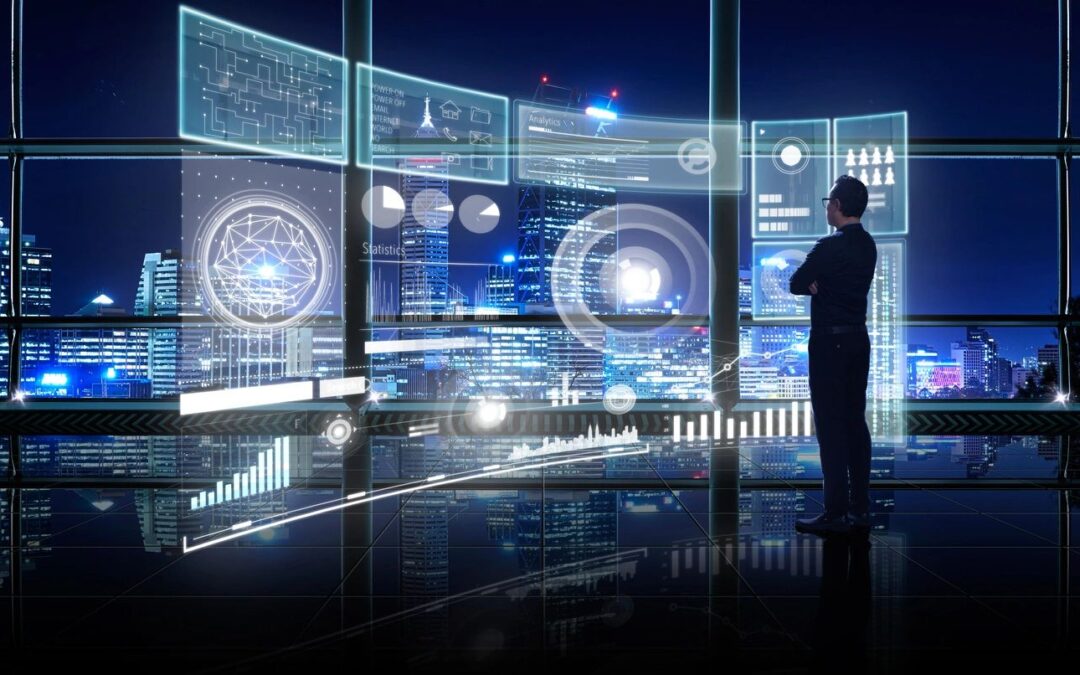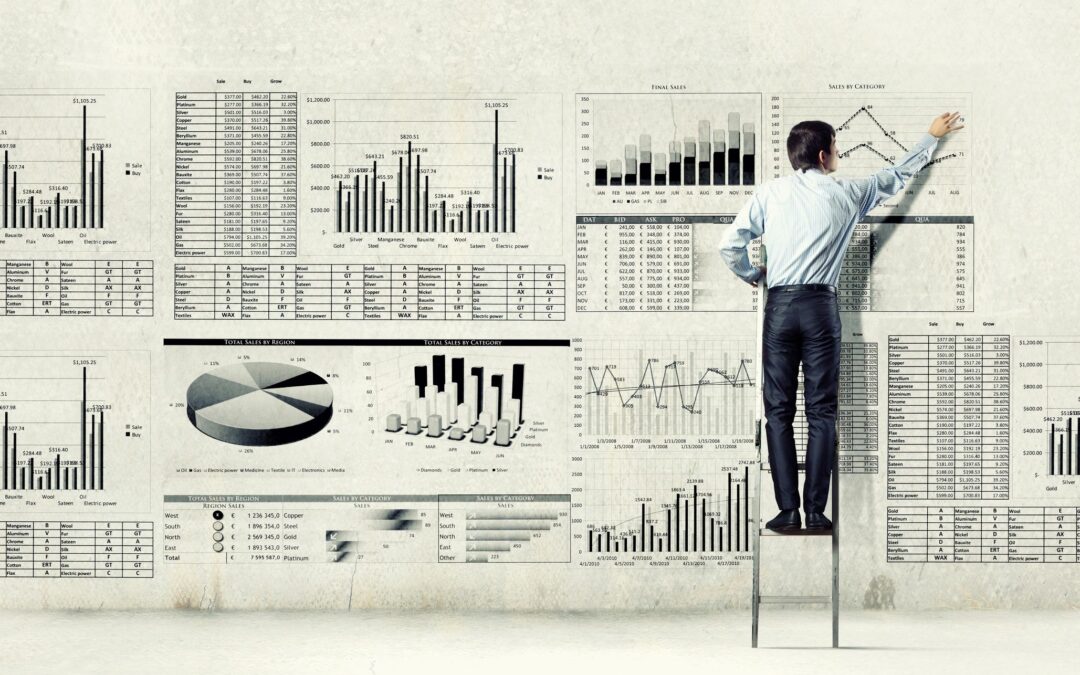
by Nicholas Mitsakos | Book Chapter, Investment Principles, Writing and Podcasts
You cannot escape physics. The value of every investment starts at zero. Entropy is our natural state (thank you to the Second Law of Thermodynamics) meaning that we are constantly fighting the destruction of value. There is always a force, equivalent to gravity, pushing an investment down. Value is created by the efficient use of capital and the created, sustainable competitive advantage. Consistent investment in a thoughtful portfolio will create sustained value, but it is work, and you will always be fighting natural physical forces. One recent example is the financial crisis of 2008 to 2009. 40% of the average equity value was destroyed in this time. However, if one invested consistently at the height of the market and continue to invest through the crash and then ultimate recovery, and investor still earned over 9% annually. Thoughtfulness, consistency, patience, and determination is the most effective way to fight gravity and thermodynamics. The most important way to fight physics and the ultimate effect of gravity is to determine what you are looking for first. Highlight growth, disruption, sustainability – what will have a long-term value creating effect. What sectors make the most impactful difference? Recently, as we look at technology, biotechnology, and other important sectors, we see above average returns because of the impactful nature of the sectors. But technology is also permeating finance (Fintech) and entertainment (streaming services) that are disrupting incumbents and creating disproportionate value to the new entrants. Is this sustainable? Will the disruptors capture value, or will more established companies ultimately win? Observation, questioning assumptions, testing models, and assuming no knowledge regardless of historical experience are the only cures for gravity.
by Nicholas Mitsakos | Book Chapter, Investment Principles, Writing and Podcasts
When to sell is more important than what to buy. One of the biggest mistakes investors make is thinking that their purchase decision is the most important decision they will make. This is misguided because most losses are lost opportunities. They may be buying decisions that were never made, but most likely, they are selling decisions where the decision to sell was made too soon. When Warren Buffett owned 5% of Disney in the 1960s, he made a 50% return. He happily sold the stock. But investment decisions should not be made based on historical returns. Once again, all investments are predictions for the future. Regardless of whether the investment you currently hold has generated a great return or lost you money, what will it do from this point on?
Buying or selling is a crucial investment decision because you are always either buying or selling. There is no such thing as “holding.” If you own something you have bought it. If you would not buy it today but continue to own it simply because you bought it in the past, and not making an investment decision, just simply being inactive. If you are an investor who is buying or selling. Selling decisions tend to be inefficient. One does not need to be active, but one does need to think like an owner. If you own a great company, there is little reason to do anything else other than stay on top of developments within that company and industry to make sure they can remain a great company. Eventually, they will revert to the mean. More than anything, that is an investor’s job – figure out when the company will revert to the mean. That means they will either be losses or tremendous gains in the future as this trend occurs.
Nothing stays above average.

by Nicholas Mitsakos | Book Chapter, Investment Principles, Writing and Podcasts
Look at the facts not the opinion about the facts. Anyone holding themselves out as an expert has, a very deep but narrow knowledge base that is rarely universally applicable. Fundamentally, listening to opinions rarely give useful insight. Often, it assumes looking backward but does not apply to the current situation. Global commerce, trade (and trade wars) tariffs, flexible manufacturing, and global markets, along with technological innovation and automation create significant pressures against inflation, regardless of employment levels. These are the set of facts to be considered, not an assumed economic model where few people understand the actual inputs from 50 years ago.Another example looks at revenue projections based on historical business models. But what happens when those business models are changing? We discussed the example of the metamorphosis from Blockbuster to Netflix where a fundamental change in the business model made revenue projections from the historical model meaningless. Then, Netflix had to change their business model again to one of the original production and international expansion – once again obviating existing models for revenue. Facts are what happened. Specific and verifiable. Knowledge is the appropriate combination of facts. Knowledge comes from understanding the facts that matter. Wisdom is the insight that leads to prediction. At its core, any investment strategy predicts the future. To predict the future effectively one needs the wisdom to grasp what will happen. Of course, this cannot be known, and there are many random events that can affect the future (see Anti-fragile and Fooled by Randomness by Naseem Taleb), and uncertainty should always be factored into any investment decisions or predictions.
by Nicholas Mitsakos | Book Chapter, Investment Principles, Writing and Podcasts
“Assume no knowledge” (Socrates)
No successful company can create or sustain its competitive strength without constantly examining its First Principles. It means defining a problem effectively, understanding the actions needed, and then implementing those plans. This requires a unique combination of perspective, talent, drive, and organizational flexibility. It is rare, but when discovered, it is where the most valuable investments are found. Defining a problem in its most basic form is essential for the most effective solutions. Most thinking stays at a superficial level because not enough thought is given to the problem one is trying to solve. There are many examples of this but mostly it comes from an attitude that says “it can’t be done that way” until, of course, someone does it.
This is the true source of any disruption. It is not simply doing things differently but looking at how the same thing can be done in a more basic and fundamental way. Assumptions about how things work (“assuming knowledge”) impedes innovation. “We’ve always done it that way” is usually the death knell of creative thinking. Many examples exist but some fundamental and obvious examples range from several well-known developments and innovations that were generated more from asking simple, basic questions instead of coming from some ill-defined inspiration.
Obvious answers only come from asking the right questions.

by Nicholas Mitsakos | Investment Principles, Writing and Podcasts
Luck and timing play an outsized role in determining any outcome – and these are extraneous circumstances one cannot influence. As in sports, sometimes the ball bounces your way and sometimes it doesn’t. What matters is doing the best you can. While this sounds like a cliché if one genuinely knows they have done their best, gave it everything, and left it all on the field, that self-satisfaction alone is the worthiest goal, not some sense of “winning.” Importantly, winning should never be the goal because you can never do your best if you compromise who you are – your values and character – while achieving your goals. Whatever the outcome, it’s just the outcome. But the values and standards that make you who you are inviolate and supersede any near-term goal.

by Nicholas Mitsakos | Economy, Investments, Writing and Podcasts
The current low interest rate environment increases the discounted present value of future cash flows and reduces the return demanded for every investment. In other words, when the Fed funds rate is zero, 6% bonds become disproportionately attractive. Buyers have now bid bond prices up until yields are now significantly less. What does it mean if the prices of stocks and listed credit instruments are at levels not driven primarily by fundamentals reasons (i.e. current earnings and the outlook for future growth), but in large part because of the Fed’s buying, it’s injection of liquidity, and the resultant low cost of capital and the market’s lower demanded returns on financial instruments? My conclusions are limited by inadequate foresight and influenced by my optimistic and pessimistic biases. Experience teaches it is hard to get the answer right. Or, as Charlie Munger has said, “it’s not supposed to be easy. Anyone who finds it easy is stupid.” At the risk of being stupid, equity investments in companies, including the five largest, with the unique competitive positions and “closed-loop” business models will remain excellent investments. In addition, certain fixed income securities paying high yields with attractive long-term risk-adjusted safety are extremely attractive and are being ignored in this unique interest-rate environment. This combination will create substantial value. Unique macro forces created by the central banks, unprecedented and sustainably low interest rates combined with pandemic-tested sustainable business models have created truly unique opportunities.

by Nicholas Mitsakos | Currency, Economy, Investment Principles, Investments, Public Policy, Trade, Writing and Podcasts
We are rapidly approaching a zero-interest rate world. Interest rates are being driven to zero (or below zero in many cases) as a first-line tool for central banks to generate economic activity in the face of the dramatic negative impact of the pandemic, as well as existing and lingering economic fallout. This toolbox will be empty soon, and the only remaining weapon will be fiscal policy. Among other things, fiscal policy and domestic financial markets will have an overwhelming influence on global currencies. Capital flows will dramatically impact currency volatility as capital moves to more attractive countries with more liquid and robust asset markets.

by Nicholas Mitsakos | Economy, Investment Principles, Public Policy, Writing and Podcasts
Defining and the problem precisely is the only way to solve anything, and, undoubtedly, the single greatest challenge to achieving anything. Otherwise, it is a waste of time and resources (which describes most public policy). All too often decision-makers waste time, resources, and make matters worse because they simply do not understand the actual problem they’re trying to solve. Very few problems are well-defined, and few people take the time and effort to understand what it is they are trying to solve. Motivation, energy, and focus on an outcome are inefficient, misguided, and dysfunctional. Good intentions do not effectively define any problem, and typically lead to very bad outcomes. Wanting to solve a big problem is fine, but not defining it accurately is inefficient at best, and most likely disastrous. It will never lead to a solution.

by Nicholas Mitsakos | Investment Principles, Investments, Writing and Podcasts
The government is providing a backstop for all government-backed securities. The Fed is also going to be extremely active in the markets, buying not only fixed-income securities but also stock index funds. They are working very hard to keep the market aloft and preventing it from cratering (they still may not be successful). This is an election year and this administration will do everything it can to make sure things look as good as possible through November.
I understand there is riskiness, but I expect economic activity and fed support to continue to increase. Even if we have an increase in coronavirus cases, people will remain optimistic – justifiably or not.
There will be extreme volatility. Economic activity will waiver, increase suddenly, pull back, and the pattern will continue for some time to come.
Market volatility is our friend because we have a stable source of cash flow that protects our capital base. On top of that, the speculative strategy will profit from volatility while the equity investment strategy will play for the long term – it is a multi-year long-term perspective.
Although there are a handful of investments where confidence in the five-year curve is justified, and now is a great time to make these long-term investments, it is still very unpredictable.
The short- and long-term state of the economy, how this massive amount of debt gets repaid, how we reopen businesses, etc. is unknown, volatile, and any attempt to predict seems fruitless. But, understanding how to adjust for risk, accept, and ultimately take advantage of volatility, will be powerful. Along with a long-term perspective, this will be the most effective investment strategy. The Fed is printing more money. We’re going to see a lot of capital injected into the global economy. But the presence of money is not the important factor. It’s the velocity of money – how people are spending it and is that money chasing after other goods. That will drive inflation. We didn’t see it in the past even though we had a massive capital injection. Deflation and recession are much bigger concerns. Inflation is not on the horizon. The Fed’s enhanced bond-buying, which includes high-yield bonds and other fixed-income securities is unprecedented and has boosted the value of debt portfolios. However, these portfolios (mostly just above or just below investment grade) still yield attractive disproportionate risk-adjusted returns.







